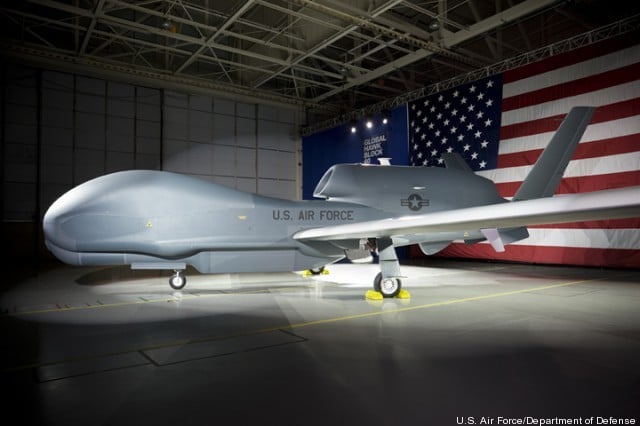Arms Export Controls Killing U.S. Drone Market; Bush
Posted on
 Washington: The “golden age” of unmanned systems development in United States could end, unless the Pentagon changes its export control rules, a senior industry executive said today.
Washington: The “golden age” of unmanned systems development in United States could end, unless the Pentagon changes its export control rules, a senior industry executive said today.
Despite the fact that United States continues to lead the world in developing and building unmanned systems, American defense companies are “struggling” to sell their UAS to U.S. allies, Northrop Grumman CEO Wes Bush said during a speech at the Association of Unmanned Vehicle Systems International’s annual symposium here.
The biggest roadblock to sales of American systems abroad is the U.S. government’s current export rules, Bush said. So far, departmental red tape has not hindered U.S. exports of UAS, but that will change as more countries start building their own drones.
“That is the concern,” Bush told reporters shortly after his speech. “They understand how [UAS] work, they understand the utility and they have a need,” Bush said of the overseas demand for unmanned systems.
India, for example, has already kicked off a multimillion-dollar effort to field their own aerial drone, Bush said. And India is not the only country doing it.
The worst-case scenario is, the American UAS industry will go the way of the satellite industry years ago, he said. A similar combination of stringent export controls and surging foreign development of satellite technology knocked the United States from its position as the No. 1 supplier of satellites to the world.
If DoD and industry is not careful, history could repeat itself in the UAS market.
The Pentagon is doing what it can to buck that trend, by pushing ahead with export control reforms, Bush said.
But as unmanned aerial systems, and soon unmanned underwater systems, quickly become invaluable on the modern-day battlefield, the Pentagon and the industry that supports it will have to get on the same page sooner rather than later, Bush said.
Subscribe to our newsletter
Promotions, new products and sales. Directly to your inbox.
